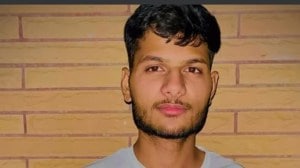Russia held Chechen leaders’ families hostage
It was 6 am when Russian soldiers hoisted themselves over the wall, crashed through the window and broke down the front door. Their quarries...

It was 6 am when Russian soldiers hoisted themselves over the wall, crashed through the window and broke down the front door. Their quarries were still asleep.
Shouting, shoving and kicking, the soldiers pushed 67-year-old Khavazh Semiyev and his wife into a truck outside, then went back for the others — his two sons and two nephews, his son’s wife, his 52-year-old sister. Then — and Semiyev couldn’t believe his old eyes — they went back for his grandchildren: Mansur (11), Malkhazni (9), and Mamed (7).
The family was driven in their nightclothes through the empty streets of Chechnya to the Russian army’s command centre at Khankala. There, the men were forced to their knees, their heads to the ground. Sacks were pulled over their heads, and their hands were tied behind their backs. For the next 24 hours, anyone who moved got kicked.
One day into the seizure of more than 1,000 hostages by suspected Chechen separatists in Beslan, Russia now had its own hostages. Altogether, an estimated 40 family members of senior Chechen rebel leaders were assembled at Khankala from Thursday, a day after the hostage seizure in Beslan, until Saturday, the day after it ended.
Semiyev’s daughter, Kusama, is Chechen separatist leader Aslan Maskhadov’s wife. Around him were suddenly assembled the entire extended families of Maskhadov and of Chechen warlords Shamil Basayev and Doku Umarov. ‘‘We figured they wanted to exchange us for the hostages in Beslan,’’ Semiyev said. ‘‘They were trying to make the people of Chechnya feel as bad as the people in Beslan,’’ said Liza Akhmadkhanova, a neighbour of Maskhadov’s brother, Lyoma.
Officially, the Russian government says it was to protect the families’ lives. A statement from Russia’s operations headquarters in the Northern Caucasus said Russian forces obtained intelligence that rebel leaders planned to kill several of their own relatives and then accuse Russian law-enforcement agencies of murdering them. The headquarters staff also said there was evidence that ‘‘spontaneous groups’’ were being formed in various areas of Chechnya to ‘‘vent their anger’’ at relatives of the rebel leaders, presumably over the events in Beslan.
‘‘There was a colonel who spoke eloquently, and everybody was afraid of him. He said we should thank fate and God for them having taken us away on time,’’ Semiyev said. ‘‘Because Maskhadov and Basayev supposedly issued an order to have us taken into the building (at Beslan) and executed with the hostages.’’
Aslanbek Semiyev, Khavazh’s nephew, who was one of the detainees, laughed at that notion. ‘‘If this was what he thought, he must be a total imbecile.’’ Maskhadov’s spokesman, Akhmad Zakayev, said Russia was trying to inspire terror in the terrorists — although Maskhadov has denied involvement and condemned the hostage-taking.
‘‘They were following the standard practice developed almost a century ago by the Bolsheviks and carried on by Stalin, who believed that every act of terror should be responded to by an even bigger, more horrendous, more terrifying terrorist act,’’ Zakayev said. ‘‘According to this practice, it is necessary to shock terrorists, and let them know that under no condition will you agree to negotiate with them.’’ Maskhadov’s family members said they met many members of Basayev’s family for the first time. ‘‘There was a big elderly man I was talking to there,’’ Khavazh Semiyev said. ‘‘We were trying to track down his relationship to Basayev. It turned out Basayev’s aunt was married to him or something. We got lost in the family tree. But it was interesting. We hugged each other when we left.’’
‘‘I was sitting watching it on TV, and I was going out of my mind. I was thinking, what kind of people could do that? What kind of people could treat children like that?’’ said Tabarik Gagayeva. Her husband disappeared in 1995, although his car was discovered demolished in an area where there had been a Russian military operation. Her two brothers and one brother’s sister-in-law died the same year after troops in a Russian armoured vehicle pulled over and asked about her brother’s wound in the arm, which he had sustained from shrapnel during a bombing. ‘‘They said, ‘Oh, you must be a fighter, because you’re wounded’,’’ witnesses to the arrest told her. After that, she said, ‘‘They killed them. So you can see that when I’m watching what happened in Beslan on TV, I remember what pain happened in my own family. I remember this with trepidation, and I cry.’’
‘‘It was a wrong thing to do. We don’t approve of this at all,’’ said Islam Islamov, a 27-year-old resident of the Chechen town of Turbino. ‘‘The hostage-takers were talking about withdrawing Russian troops from Chechnya, but I don’t think it would be a good idea at all to withdraw the troops. If that happens, this (Republic’s) really going to be a mess.’’
Abdul-Kadyrova, 67, said Russian interrogators asked her about her contacts with her brother, with whom she said she had not spoken since he was ousted from the presidency and disappeared into the mountains to lead the rebels. She said she was sure her brother would never have ordered the seizure of children as hostages.
‘‘My brother is fighting for Chechnya’s independence. He wants the Chechen people to be free, he doesn’t want them to be subordinate to Russia,’’ she said. ‘‘My brother will never give up his cause, and if he does, he cannot be considered a ma anymore. … My brother would rather kill all of us than give us over to the Russians.’’
— LAT-WP



- 01
- 02
- 03
- 04
- 05




























